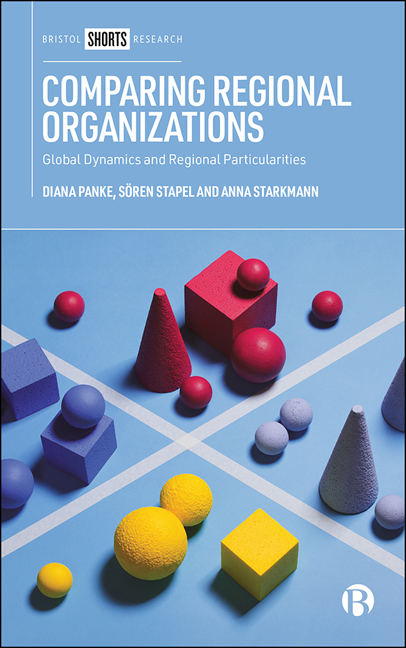Book contents
- Frontmatter
- Contents
- List of Figures and Tables
- Abbreviations
- Preface
- One Introduction
- Two Conceptual Framework and Measurement
- Three The Global Perspective
- Four Regional Organizations in Africa
- Five Regional Organizations in the Americas
- Six Regional Organizations in Asia
- Seven Regional Organizations in Europe
- Eight Conclusion
- Notes
- Appendix
- References
- Index
Two - Conceptual Framework and Measurement
Published online by Cambridge University Press: 12 March 2021
- Frontmatter
- Contents
- List of Figures and Tables
- Abbreviations
- Preface
- One Introduction
- Two Conceptual Framework and Measurement
- Three The Global Perspective
- Four Regional Organizations in Africa
- Five Regional Organizations in the Americas
- Six Regional Organizations in Asia
- Seven Regional Organizations in Europe
- Eight Conclusion
- Notes
- Appendix
- References
- Index
Summary
The first part of this chapter presents the conceptual framework of the book. It discusses why policy competencies and membership of ROs can have important ramifications for their operation. Policy competencies define the issues in which an RO can become potentially active in practice, while the size of an RO, in terms of the number of member states, has implications for the RO's ability to engage in collective action. Based on these two dimensions, RO competencies and RO size, the chapter introduces a two-by-two matrix that provides a typology of ROs, distinguishing between small selective, small encompassing, large selective and large encompassing ROs, and discusses potential implications.
The second part of Chapter 2 introduces the ROCO datasets, which entail information on RO policy competencies and state membership as the two core variables of the RO typology put forward in this book.
A typology of Ros
ROs come in different shapes and forms. Some are old (SACU was created in 1910), others are new (UNASUR was created in 2008); some are large (AU), others are small (the Mekong River Commission [MRC]); some are supranational (the EU), others mostly intergovernmental (Shanghai Cooperation Organisation [SCO]); some are based on colonial patterns (West African Economic and Monetary Union [UEMOA]), others lack a common identity (Southeast Asia Treaty Organization [SEATO]), to name but a few differences. This section introduces an RO typology based on two important dimensions and discusses how this typology can be used not only to systematize and compare ROs across time and space, but also to discuss the challenges faced by ROs and the potential solutions.
Defining membership is crucial for the operation of organizations as it explicates who may or may not benefit from cooperation (Koremenos et al, 2001). Along these lines, international organization (IO) scholarship differentiates between universal and particular istic membership of organizations. The former IOs can be potentially joined by all states, whereas the latter place restrictions on who gets in based on geographic, functional or ideational criteria (Archer, 2014). This book focuses exclusively on ROs that are crucially based on geographical criteria (but can be combined with other particularistic criteria). Nevertheless, ROs are not all the same when it comes to membership.
- Type
- Chapter
- Information
- Comparing Regional OrganizationsGlobal Dynamics and Regional Particularities, pp. 15 - 28Publisher: Bristol University PressPrint publication year: 2020



